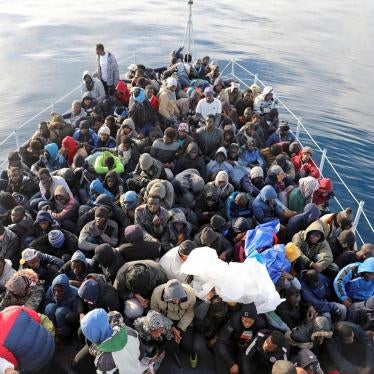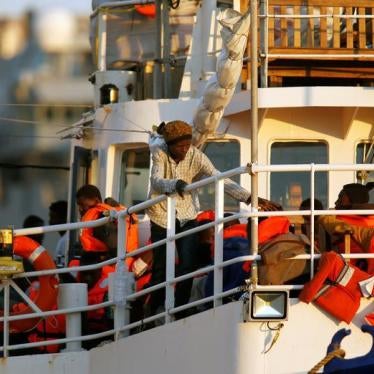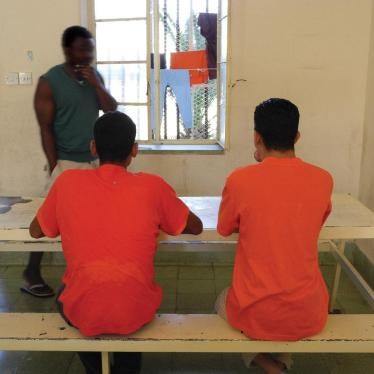During a rally on Sunday, March 30, for Malta’s Freedom Day, which marks the country’s independence from British rule, Malta’s prime minister made a significant pledge: he committed to end the detention of migrant children.
Malta — a key entrance point for irregular migrants coming to the EU — can implement the Prime Minister’s promise immediately. It can stop detaining migrant children and their families, sending them straight to open reception centers instead. Malta can also stop detaining unaccompanied migrant children pending age assessment.
Even though these kids travel without parents or other guardians to protect them, Malta locks them up with unrelated adults, leaving them vulnerable to abuse. With the Prime Minister pledging to end detention of children, these are practices that must be changed.
Thousands of migrants from countries like Egypt, Somalia, Eritrea, and increasingly Syria, take perilous, sometimes fatal, boat journeys across the Mediterranean each year, seeking new lives in Europe with many claiming asylum. Malta, which rescues some of these boats when they go into distress, now has the highest number of asylum seekers per population of any country in the European Union.
Until now, Malta has placed virtually all of these migrants — many of whom are fleeing violence or persecution — in detention for up to 18 months. They can’t meaningfully challenge their detention — a violation of European and international law.
If put into effect, Muscat’s declaration would make Malta a strong supporter of recent developments in children’s rights law. The world’s leading body on children’s rights — the UN Committee on the Rights of the Child — said in 2013 that states should “expeditiously and completely cease the detention of children on the basis of their immigration status”.
This committee, along with the Council of Europe’s Commission against Racism and Intolerance and Commissioner for Human Rights, the UN High Commissioner for Refugees, Human Rights Watch, and leading Maltese NGOs, have all criticized Malta’s detention policy. The European Court of Human Rights has issued two rulings mandating that Malta undertake general reforms to its immigration detention system. Muscat’s stated intention to end detention of children should pave the way for the general reform needed for all migrants.
There’s no question that Malta, located at the frontier of the EU, takes on a large number of migrants compared to the tiny size of the country. Malta has — and uses — open reception centers for certain migrants. This statement is a welcome recognition that the centers can be used more broadly — meaning freedom for children.







